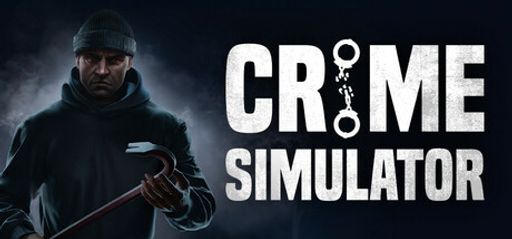I approach every game with a clear lens: what can I master, what must I exploit, and where do I need to adapt? Crime Simulator, from indie studio CookieDev and published by Ultimate Games S.A., launched on June 17, 2025. It is not the subtle stealth sim some expect from the term “Thief Simulator.” Instead, it delivers a fast-paced, roguelite heist loop built on risk, reward, and replayability. You can play solo or with up to four players, balancing time, tools, and human unpredictability to pay off a debt before everything collapses. As someone who thrives on system mastery, I found it tense, rewarding, and often thrilling — though a few rough edges remain.
Overall Impressions
The loop stands out: pick a target, breach, loot, and sell before time runs out. This run-based design gives every job a clear goal and immediate stakes. CookieDev leans into emergent chaos — an NPC’s strange patrol, a teammate’s risky move, or the absurd comedy of carrying a moped like gold. Consequently, each run feels fresh.
Expectation management is the main stumbling block. Several reviewers compare it to Thief Simulator, but the tone is closer to Lethal Company and other run-and-grind games. If you want slow-burn stealth, you may be frustrated. There are also polish issues: in some sessions voice chat feels unnatural, and occasional AI glitches or clipping can break immersion.
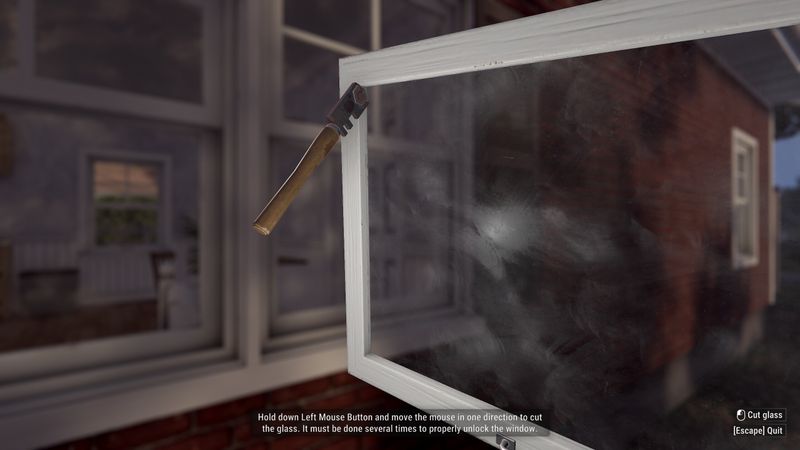
Gameplay Mechanics
The mechanics are the real hook. Your toolkit includes lockpicks for finesse, sleeping gas for non-lethal takedowns, and brute force when subtlety fails. Map variety is solid, with multiple entry points and diverse loot. Meanwhile, the time limit forces high-pressure choices — hide and wait, or smash and grab.
Tool synergy is where the game shines. For example, tossing gas through a window before picking a lock creates a satisfying rhythm. Roguelite progression adds depth through permanent upgrades between runs, influencing how each job plays and ensuring lasting growth. Unpredictable NPC behavior — from sharp-witted to hilariously oblivious — keeps breaches dynamic.
However, immersion dips when voice chat ignores distance, making all teammates sound equally close. As a result, players often switch to Discord. Occasional AI quirks and clipping can also cause unfair detection or sudden deaths, though they rarely ruin the experience.
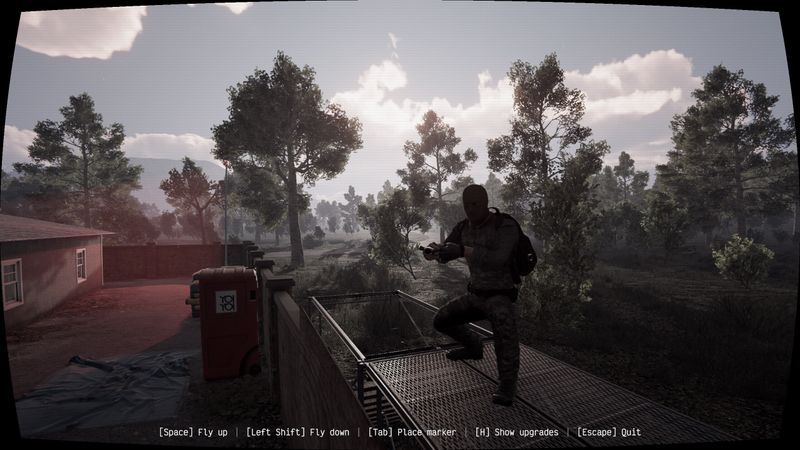
Standout Moments
I have had several runs where timing and tool choice created cinematic escapes: knocking out a homeowner with gas, carrying a bulky moped out through a back alley, and racing the clock back to the van. Those runs are the reason I return.
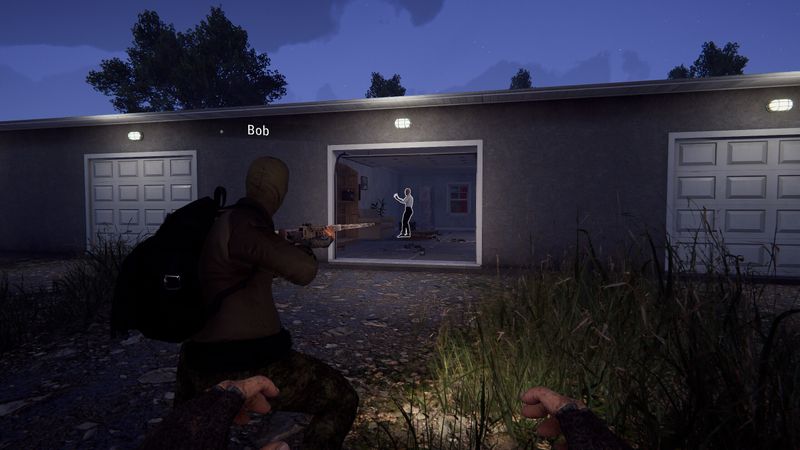
Story and Characters
Crime Simulator’s narrative is functional rather than cinematic. You are a former prisoner with a debt. This gives you a motive and a light narrative thread but the game is not story-first. Where it succeeds is in world-building: the small details — the worn apartment blocks, scattered personal items, and radio chatter — create a believable street-level environment. NPCs are not deeply drawn characters, but they are vivid in the moment; the randomness of their actions produces memorable encounters, like the player who described a kitchen ambush by a man with a bat.
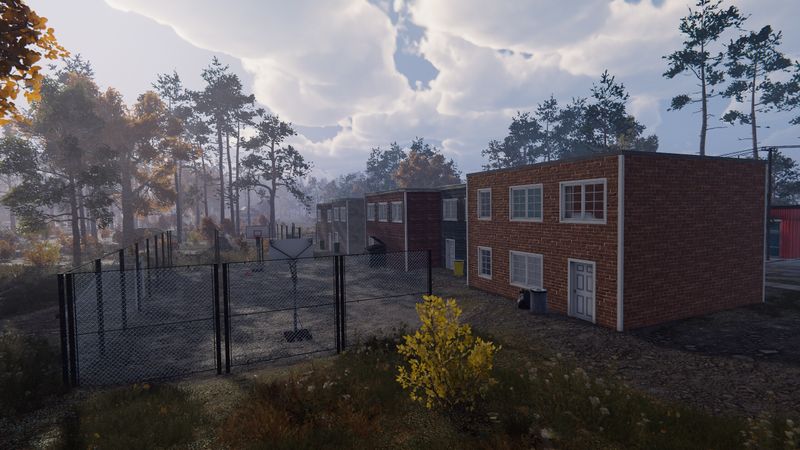
Visuals and Graphics
Graphically, Crime Simulator opts for realism with a slightly rough edge. Environments are convincing and the lighting does a lot to sell tension — dusk and interior shadows create good stealth plays. Textures and models occasionally betray indie budget limits: clipping, low-res textures at distance, and sometimes stiff animations. Still, the artistic choice supports the tone: gritty, immediate, and grounded rather than polished and high-end.
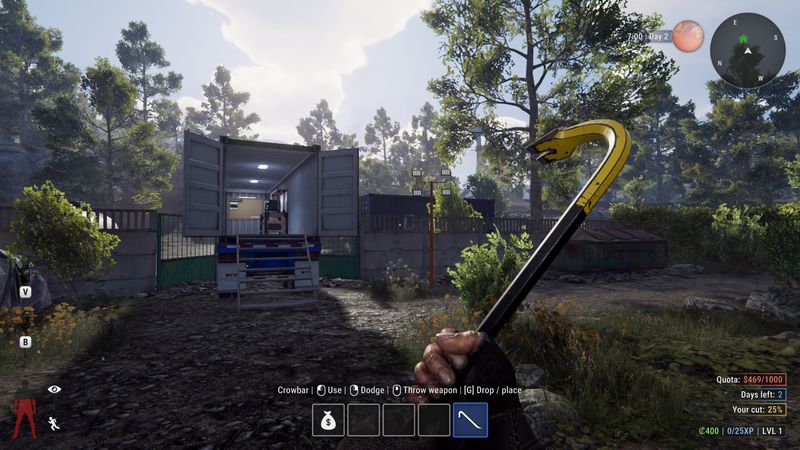
Sound and Music
Sound design often drives the tension. Creaking floors, distant radios, and the thump of a dropped item all feed the nervous energy of a run. The soundtrack is sparse and fitting; it does not draw attention away from play. My biggest complaint is voice chat implementation: other players report and I experienced voice that does not respect distance or local cues. Because player communication is central in co-op, this needs fixing. There is no heavy voice acting for NPCs, which fits the game’s design.
Difficulty and Replayability
Difficulty scales well. Early runs teach you the basics; as you unlock upgrades and face stricter quotas, you must refine tactics. The roguelite structure combined with permanent upgrades makes progress feel meaningful. Replayability is the game’s strongest suit: each job feels different thanks to NPC behavior, randomized loot, and the build options you can pursue between runs.
Player feedback mirrors my view: many recommend the game to those wanting a Lethal Company–style loop rather than a serious stealth sim. The persistent upgrades and emergent NPC interactions are frequently praised. The top technical request is better VOIP and perhaps more refined NPC reactions to player sounds.
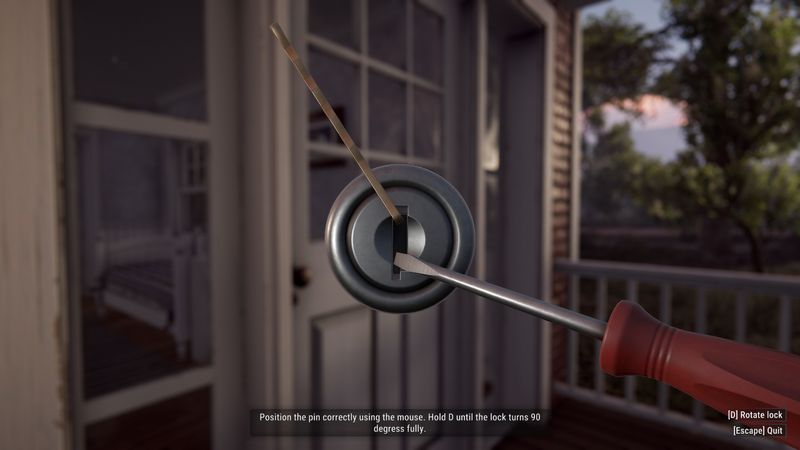
Strategy notes for hardcore players
Maximize your efficiency in co-op and solo missions by specializing early with permanent upgrades tailored to your role—choose lockpick mastery for stealth, carry capacity and sprint boosts for loot running, or gas efficiency for support. In team play, assign clear roles like scout, lock specialist, and runner to save valuable time by splitting tasks. Always prioritize silence to avoid attracting danger, resorting to brute force only when escape routes are secure.
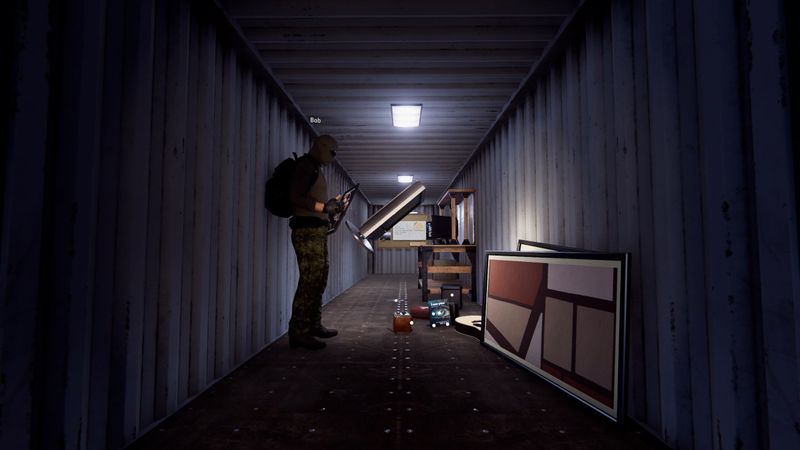
Final Thoughts
Crime Simulator is an energetic, smartly designed roguelite heist game. It does not try to be a slow, methodical simulator; it aims for a fast, emergent loop that rewards planning and adaptability. For players who love tense co-op runs, system mastery, and unpredictable NPC encounters, this is a strong pick. For those seeking deep narrative or a polished stealth sim, it will disappoint.
Rating: 4 out of 5 stars
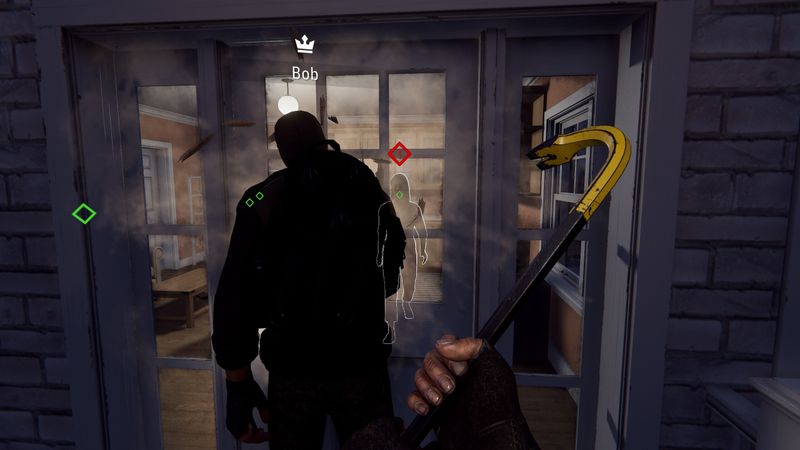
Trivia / behind the scenes
CookieDev is an indie developer finding its voice with Crime Simulator, and the title’s “Very Positive” early reception suggests a strong community interest. Ultimate Games S.A., the publisher, has a track record of supporting niche and simulation-style titles, which likely helped Crime Simulator find its audience. Community suggestions — notably distance-based VOIP and enhanced NPC reactions — are frequent and constructive; addressing them would tighten co-op play and push this game closer to a must-have for competitive co-op players.
As someone who loves mastering systems, Crime Simulator gave me runs that were both methodical and chaotic, often in the same breath. It rewards patience, planning, and quick decision-making. If you accept what it is — a roguelite heist grinder — you will find a game that is deep, replayable, and frequently exhilarating.

